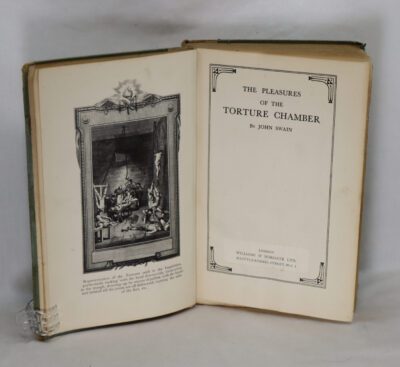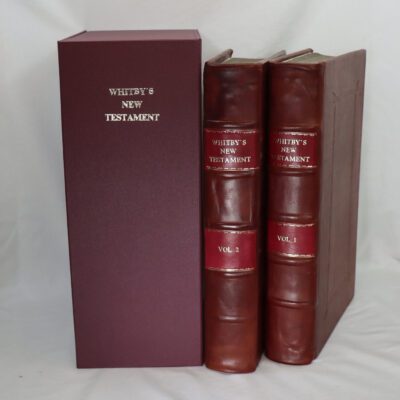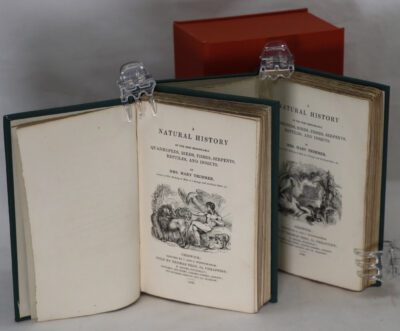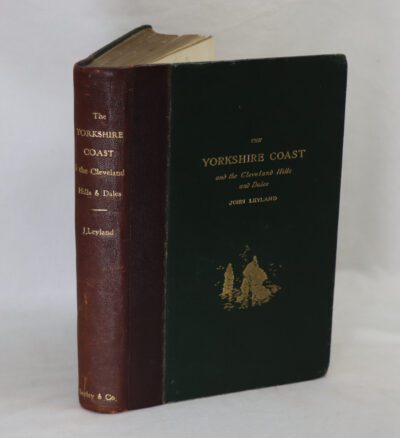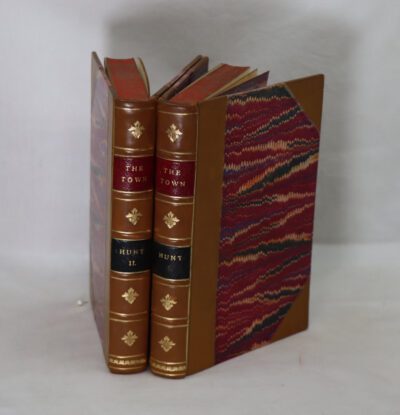In a Winter City. Ouida.
By Ouida
Printed: 1876
Publisher: Bernhard Tauchnitz. Leipzig
Edition: copywright edition
| Dimensions | 13 × 17 × 4 cm |
|---|---|
| Language |
Language: English
Size (cminches): 13 x 17 x 4
Condition: Fine (See explanation of ratings)
FREE shipping
Item information
Description
Cream calf half binding with maroon boards. Green title plate with gilt title and banding on the spine.
It is the intent of F.B.A. to provide an in-depth photographic presentation of this book offered so to almost stimulate your feel and touch on the book. If requested, more traditional book descriptions are immediately available
RARE FIRST EDITION – 1876
Ouida (1 January 1839 – 25 January 1908) was the pseudonym of the English novelist Maria Louise Ramé (although she preferred to be known as Marie Louise de la Ramée). During her career, Ouida wrote more than 40 novels, as well as short stories, children’s books and essays. Moderately successful, she lived a life of luxury, entertaining many of the literary figures of the day. Under Two Flags, one of her most famous novels, described the British in Algeria. It expressed sympathy for the French colonists—with whom Ouida deeply identified—and, to some extent, the Arabs. The novel was adapted for the stage and was filmed six times. Her novel A Dog of Flanders is considered a children’s classic in much of Asia. The American author Jack London cited her novel Signa as one of the reasons for his literary success. Her lavish lifestyle eventually led her to penury, and her works were put up for auction to pay her debts. She died in Italy from pneumonia. Soon after her death, her friends organized a public subscription in Bury St Edmunds, where they had a fountain for horses and dogs installed in her name.
During her career, Ouida wrote more than 40 novels, children’s books and collections of short stories and essays. Her work had several phases.
In 1863, when she was 24, she published her first novel, Held in Bondage. (She later claimed to have written her well-received novel Idalia (1867) at the age of 16. It featured a rebellious ingenue heroine who was sympathetic to Italian independence.)
In her early period, her novels were considered “racy” and “swashbuckling”, a contrast to “the moralistic prose of early Victorian literature” (Tom Steele), and a hybrid of the sensationalism of the 1860s and the proto-adventure novels being published as part of the romanticisation of imperial expansion. Later her work was more typical of historical romance, though she never stopped commenting on contemporary society. She also wrote several stories for children.
Under Two Flags, one of her most famous novels, described the British in Algeria. It expressed sympathy for the French colonists (called pieds noirs)—with whom Ouida deeply identified—and, to some extent, the Arabs. The novel was adapted for the stage, and was filmed six times. The American author Jack London cited her novel Signa, which he read at age eight, as one of the eight reasons for his literary success.
Want to know more about this item?

Related products
Share this Page with a friend



